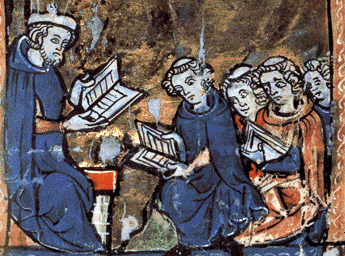Hrólfs saga kraka — chs 34-35 §35.11
fæstir ‘few’
nom. m. pl. superlative;
3. fár (adj.; °compar. fǽrri/fárri(Mág² 11), superl. fǽstr): few
Closebest ‘as the best’
acc. m. sg.
betri (adj. comp.; °superl. beztr/baztr; pos. góðr adj.): better, best
Closedýrinu ‘the beast’
dat. sg. definite form;
1. dýr (noun n.; °-s (spec.: dyʀiɴs KonrA 66⁴, etc., cf. Seip 1955 188-189); -): animal
Closehann ‘he’
nom. m. sg.
hann (pron.; °gen. hans, dat. honum; f. hon, gen. hennar, acc. hana): he, she, it, they, them...
CloseDýrit ‘The beast’
nom. sg. definite form;
1. dýr (noun n.; °-s (spec.: dyʀiɴs KonrA 66⁴, etc., cf. Seip 1955 188-189); -): animal
CloseSíðan gengr Hǫttr at dýrinu alldjarfliga ok høggr til þess, þá hann kemr í hǫggfœri. Dýrit fellr niðr dautt.
Teaching text: text section
Here you can see a piece of text. Clicking on words in the text will show you the dictionary headword, grammatical information and notes on how the word is used.
You should pay careful attention to the explanation of each word. You can test your knowledge using the translation and other exercises.
In some cases there may be audio of a modern Icelandic rendition of the text on this page.
